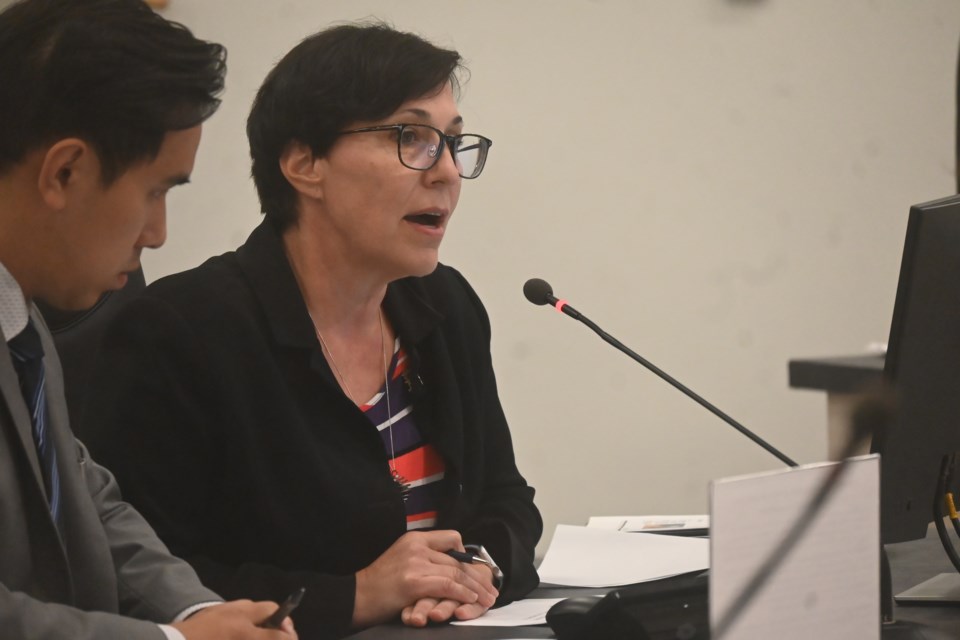Newmarket council praised a proposal for a new York Region mental health hub, but some residents are concerned about the impact it could have on the area.
The Canadian Mental Health Association York Region and South Simcoe plans to bring the hub to 17255 Yonge St. by April 2026. The project announced by the province this summer is a first-of-its-kind model to help treat mental health crises and connect people with ongoing care.
At a public planning meeting today, CMHA CEO Rebecca Shields said they are committed to being good neighbours and working with the community throughout the planning process and beyond to ensure the facility works well within the neighbourhood.
“I understand what it means to have a safe and welcoming environment and safety in the community. That has to be one of our priorities,” she said. “We certainly don’t anticipate a rash of problems.”
The proposed hub would provide 24/7 specialized support for those age 12 and older who voluntarily submit for immediate mental health needs. It would include 20 short-stay beds to help those in crisis.
It comes after about a decade of discussions and efforts from community members and organizations, spearheaded by CMHA in the last few years. Shields said it will deliver a comprehensive set of services.
“You’re going to see occupational therapists, mental health workers, all there to support the immediate needs of somebody in crisis,” Shields said. “We’re going to try to stop the cycle of crisis.”
Councillors asked questions but generally praised the facility. Newmarket Mayor John Taylor said this will be a benefit to the community.
“It’s understandable for you to have concerns, but this is a huge win,” Taylor said. “Many communities would love to have this type of support and facility. This is a huge step forward for mental health.”
Deputy Mayor Tom Vegh recounted all the work and discussion between CMHA and partners that went into the facility but recognized the concerns that could emerge. But he said CMHA should be sure to work with residents on the matter with a liaison group.
“When we talk about these types of services, neighbours get scared. They don’t know … We’re not going to guarantee there won’t be challenges. We’re not going to guarantee there won’t be some issues.”
Area resident Masoud Gheisari asked about security for the facility.
“What happens when the next unstable patient decides to walk down the street instead of into the facility,” he said. “How can you ensure the safety?”
Taylor said there is security at the facility, along with York Regional Police partnering, but added that such a thing would be the exception.
Several residents have also raised concerns about the nature of the facility treating drug addictions.
“Neighbourhood residents are aware of other cities and towns where mental health facilities for drug addiction opened and afterwards property values decreased, businesses closed, homes could not be sold and are boarded up. How will you protect our home values?” Darlene Gardner and Rob Rosendale wrote in a letter to council.
Shields specifies that this will not be a supervised consumption site. She said there would be help with patients experiencing withdrawal symptoms, but this would not be a place with any kind of narcotics available.
“People will come in and we will support them to stabilize, but we will be working to transition them to ongoing addiction recovery homes,” Shields said. “We don’t anticipate people staying around the site in the way you have seen in some communities where there are safe consumption sites.”
Shields said CMHA will connect with the community and have an ongoing liaison committee to discuss and address any issues that might arise.
The meeting was a public planning meeting, with the CMHA needing a zoning amendment for the facility to move forward. Council has not made formal decisions on the matter, but it is expected that the application will come before council for decision after staff review.
Taylor said CMHA and the town are committed to working with people in the area to help them understand what is planned and hear all thoughts and concerns.
“We owe it to you in your immediate neighbourhood to make sure we’re there, we’re listening to you, taking your input, your advice and adjusting and adapting,” Taylor said.
